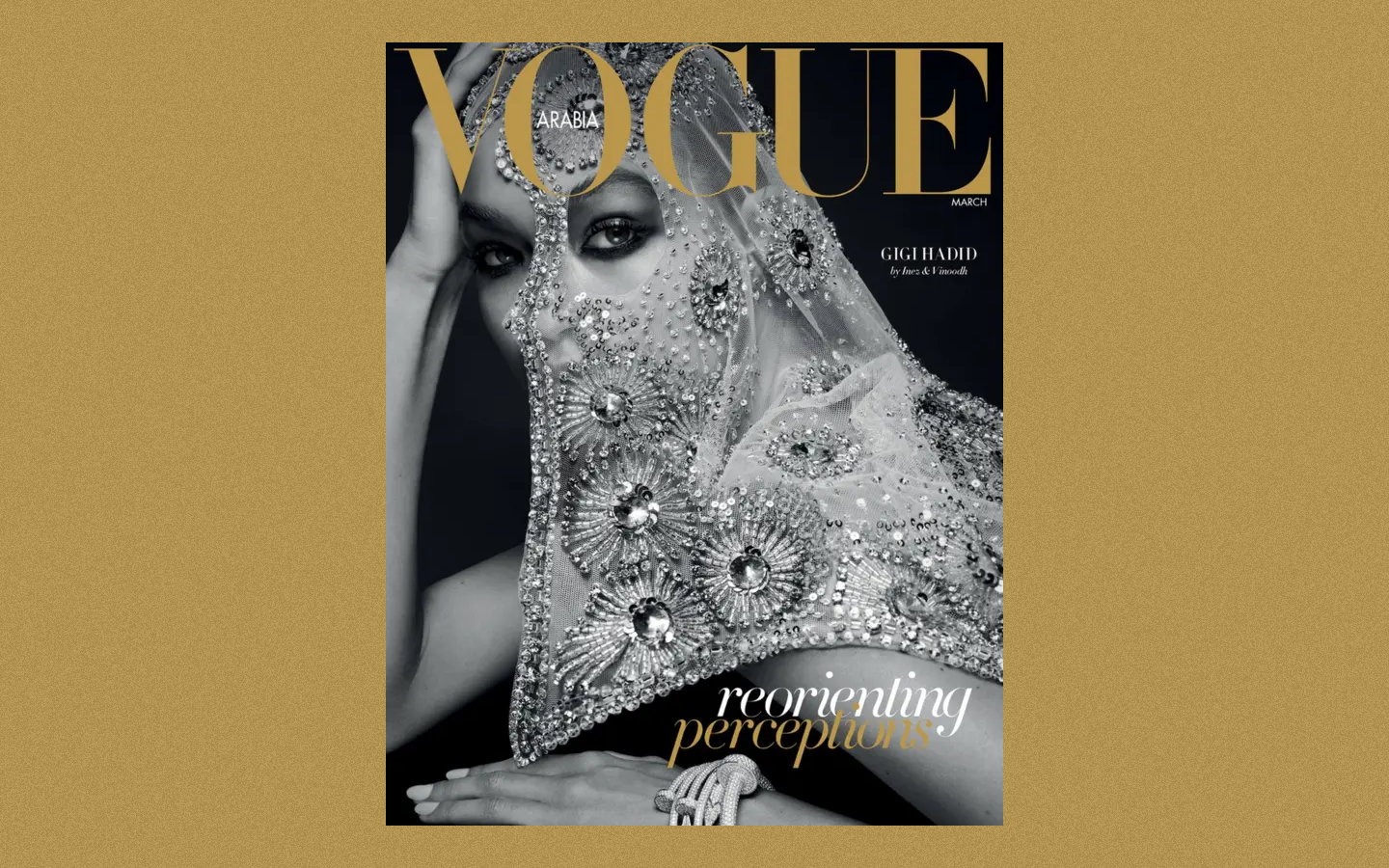Bitter Dispute Between Condé Nast & Vogue Arabia
Both companies are in arbitration and federal court as Condé Nast—struggles to adapt in a challenging century.
Words by Damian Nicholas | 2 Minute Read
GIGI HADID / VOGUE ARABIA
In a display of glamour and conflict, Vogue editor-in-chief Anna Wintour hosted a high-profile gathering in Dubai on January 30, themed “Dress: A touch of gold!” However, the celebratory atmosphere may be overshadowed by a bitter legal battle brewing between Condé Nast and its former local partner, Nervora.
The dispute lies in a lawsuit filed by Nervora, which claims that Condé Nast's abrupt termination of their licensing agreement violated the terms laid out in their contract. This disagreement comes on the heels of Condé Nast's takeover of Vogue Arabia, which Nervora has successfully operated for the past eight years. The fallout has included the end of the magazine’s website, and social media account, and the laying off of local staff, a move that has left many in the industry shocked. Shashi Menon, the founder and CEO of Nervora, expressed his frustration, calling Condé Nast's actions a “brazen and bad faith attempt” to seize a brand his company has meticulously cultivated. Nervora's lawsuit, filed last summer in a U.S. federal court, underscores the complex dynamics of international publishing and the challenges faced by established media entities attempting to adapt to a changing global landscape.
ANNA WINTOUR / GETTY IMAGES
A spokesperson for Condé Nast responded, acknowledging the contributions of Nervora while confidently asserting that legal grounds support their decision to assume control of Vogue Arabia. The contrasting narratives set the stage for a complicated legal battle, with both sides currently engaged in arbitration. The tension surrounding Vogue Arabia is indicative of broader challenges facing Condé Nast. As the company grapples with evolving market dynamics, particularly in the luxury sector, its ventures into the international arena have represented a significant yet tumultuous opportunity.
While the Gulf region remains one of the few thriving markets for luxury advertising, many brands have struggled to maintain profitability in the U.S., Europe, and China amid shifting consumer behavior. Menon has highlighted Vogue Arabia as one of the most successful licensed editions globally. The magazine has featured a diverse array of prominent figures, including supermodel Bella Hadid, tennis sensation Ons Jabeur, and reality star Kim Kardashian. However, its provocative covers have often ignited controversy, particularly when addressing sensitive geopolitical issues.
ONS JABEUR / VOGUE ARABIA
The legal contention primarily revolves around contractual intricacies. Nervora has put forth evidence suggesting that an agreement made in 2016 stipulated that Condé Nast would buy them out should they choose to reclaim the brand. In response, Condé Nast executives have alleged that Nervora's progress in digital and event-related initiatives has been insufficient. Adding to the intrigue, Vogue Arabia's editor Manuel Arnaut recently stirred conversations within the fashion community with a social media post seemingly aimed at his new branding, hinting at the challenges of navigating the expectations of a major publisher. As the dispute unfolds, it raises questions about the future of Vogue Arabia and the broader implications for luxury media in a rapidly changing world.
The legal saga is not just a business dispute; it reflects the complexities of global partnerships where ambition and local expertise collide. Whether Condé Nast's confident stance will translate into a successful resolution, or whether Nervora's claims will alter the course of Vogue Arabia remains to be seen. For now, the glitz of the January gathering in Dubai may only serve to shine a light on an industry grappling with its evolving identity in the face of conflict.
Damian Nicholas
Editor-in-Chief, Frasspot
Damian Nicholas is the editor-in-chief for Frasspot. He manage all content, production, and consumer experiences across all platforms. He has contributed as editor-in-chief since December 2019.
Feb 11, 2025
Source: Semafor
More in Journal
ADVERTISEMENT










